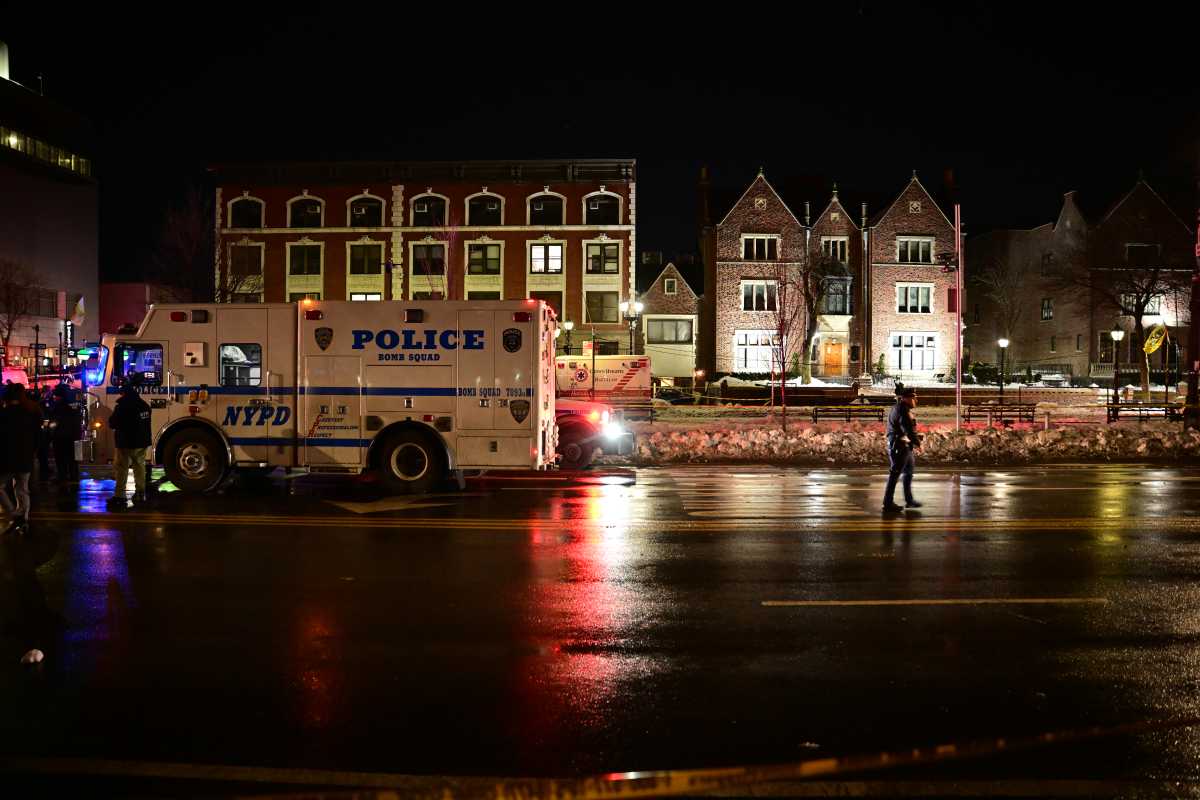The city offered a disabled female cop a $325,000 court settlement on March 29 — a day before claims that her sexist NYPD superiors had refused to give her a large line-of-duty injury pension were heard in Brooklyn federal court.
Police Officer Pamela Walker’s attorneys were preparing to pick a jury for the sexual discrimination trial when the city made its $325,000 offer, although the settlement stipulates that the NYPD did nothing wrong by refusing to authorize a tax-free line-of-duty pension that would have given her more than $2,000 a month for the rest of her life.
A bullet punched its way through Walker’s hand in 2002 as a male superior officer handed her a loaded .38 caliber handgun during a routine weapons inspection. According to court papers, Lt. John Dietz accidentally snagged the trigger when he handed the pistol to Walker, then ran out of the room “without rendering aid.”
Walker filed for line-of-duty disability, claiming her wound prevented her from working.
The tax-free disability payments were initially approved, but then pulled when the pension board determined the wound was self-inflicted.
“[Walker’s injuries were caused by her] inability to maintain control of the weapon,” the pension panel said as they offered her an ordinary — and taxable — disability pension in which she would receive only $800 a month.
Walker was outraged by the panel’s finding — declaring she was denied the better package because she was a woman.
Jeffrey Goldberg, Walker’s attorney, saw the settlement as a vindication for his client.
“Although the NYPD will not admit liability in the case, the settlement indicates that Mrs Walker was not negligent,” Goldberg said.
Vowel gambit shot down
An Italian-American in a state prison for a murder he committed in 1986 conjured up a unique excuse in his latest attempt to get his conviction overturned: no one with an Italian last name was seated in the jury, which he saw as a racist move by the Brooklyn District Attorney’s office.
In a motion filed earlier this year, murderer Camillo LoVacco claims that the apparent bias on the DA’s part, as well as the fact that he was illegally barred from the courtroom when his jury was being picked, warranted that his conviction should be overturned and a new trial be called.
Prosecutors balked at LoVacco’s motion, claiming that the court records indicate he was present during voir dire — the process in which the jury is empaneled.
But LoVacco has two witnesses claiming that he wasn’t inside the courtroom when jury selection took place. One was his girlfriend, who recalls not being able to locate him that day.
The other is a retired court officer — a friend of LoVacco’s — who remembers seeing the murder suspect in a holding pen.
Judge Joseph McCay shot down the claims of both witnesses, which he said were too biased to be believed.
“On its face the [court officer’s] affidavit adds nothing helpful to the defendant on this motion and [his girlfriend’s] affidavit fares no better,” McCay wrote when he dismissed the motion on March 29.
McCay also punched holes in the theory that the prosecution was refusing to empanel jurors with Italian surnames.
No one could back that claim since the only person who can prove that this had happened had died.
McCay also said that these points were raised in earlier motions — and were summarily rejected.
























